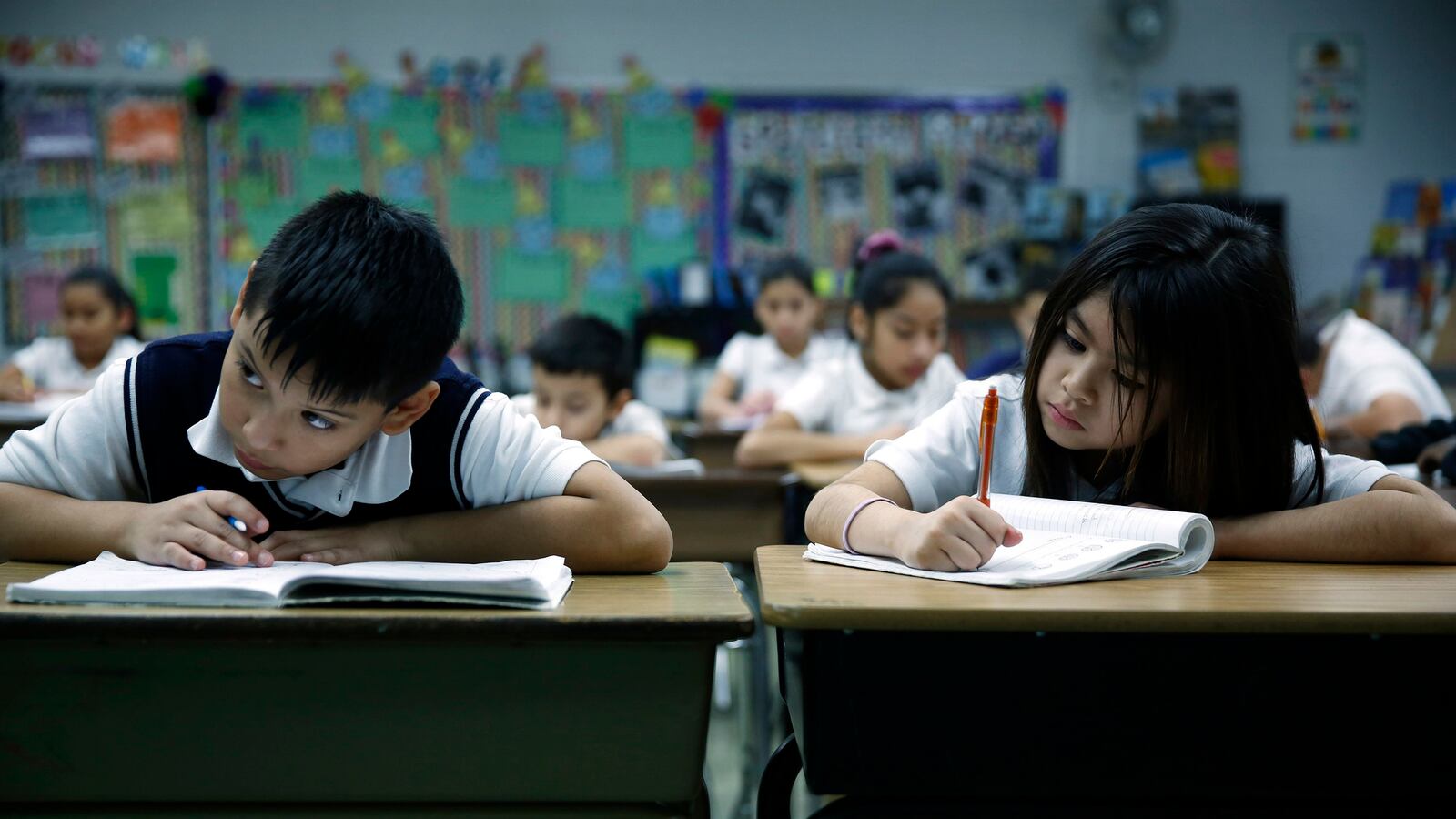There’s an old adage, “You can’t pour from an empty cup.” But as a paraprofessional in Chicago, my cup is almost drained.

Each day, I provide academic, emotional, and behavioral support for over 200 students. The amount of mental and emotional energy it takes to calm a single student down, redirect or remove them from the class, and provide appropriate consequences is overwhelming — even with experience — when there are 11 other six-year-olds in a classroom that need my help.
Related: Chicago teachers, take our back-to-school survey
I look forward to coming to work in the morning, but by the time I get home, I barely have the energy to make my own dinner or plan activities for the next day. I tune out almost everything and everyone. While I love what I do, it is hard.
This heavy responsibility affects my mental health and the health of all educators, and it certainly impacts our ability to properly teach and support students. In the wake of Chicago’s teacher assistant layoffs this summer, my colleagues and I have dealt with the added stress of job uncertainty, too.
But we haven’t acknowledged the effects of that stress on educators, and we aren’t equipped with support to manage it.
The good news is that we are having a conversation about the effects of stress and trauma on our students. I’ve watched advocates successfully push for change: Educators for Excellence-Chicago, an educator-led organization I am involved with, brought some of these issues to light last June. Since then, we have held citywide problem-solving forums in partnership with the district’s Office of Social Emotional Learning and successfully advocated for the passage of two school state resolutions to ensure that student trauma is appropriately recognized throughout Illinois.
The recent focus on social-emotional learning — also known as “soft skills” — in our classrooms is also helping schools better prepare students for challenges that no child should face, but many do.
Those challenges are real: In my classroom, one student is a caregiver for his parent, another has lost multiple siblings to gun violence, and many others have parents that work long hours and are rarely around. These experiences have a considerable impact on their learning; often, students don’t have the tools to cope with this stress, and so they express their frustration by acting out in disruptive ways.
And yet, amid all this advocacy for our students’ mental health, we neglect our own. I worry that without a healthy state of mind, educators can’t offer their best teaching and attention to students, perhaps causing additional harm to kids already dealing with heavy burdens outside of school.
I don’t think it has to be this way. If more funding was allocated to our schools for student counseling, it would allow educators more time to focus on teaching. Our schools could provide social and emotional support to our students and staff to help them learn coping mechanisms. We would be able to hold self-care activities for the entire school. Support staff could give students and parents tools to support them outside of school.
To ensure students’ well-being, we need our own help.
Dr. Martin Luther King Jr. said it best: “Whatever affects one directly, affects all indirectly. I can never be what I ought to be until you are what you ought to be. This is the interrelated structure of reality.” Student and educator mental wellness are deeply interconnected, and we all must make sure we help educators be the best they can be for their students.
Shakita Smith is a teacher’s assistant at Pablo Casals School of Excellence in Humboldt Park. She is also a member of the Chicago Teachers Union and Educators for Excellence, a national teacher policy and advocacy organization.
About our First Person series:
First Person is where Chalkbeat features personal essays by educators, students, parents, and others trying to improve public education. Read our submission guidelines here.


